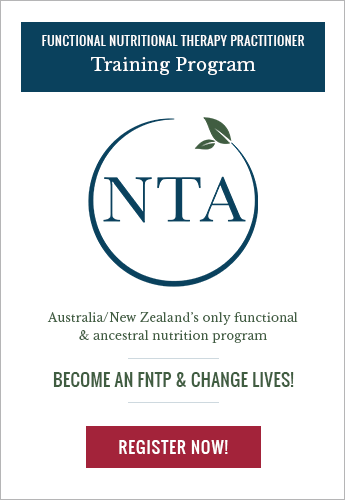
Four Steps to Better Gut Health
7 December 2023 by Deanne Landers

Yes, that's right - only 4!
Gut health is absolutely vital to our overall health and wellbeing. Your gut is where you digest and absorb fuel from food and where nearly all of your immunity cells live. Not to mention, you have more neutrons (brain cells) in your gut than you do in your actual brain! So it’s no wonder there’s more and more research going into gut health - and, as individuals, we’re better off for it! Good gut health is here to stay!
So, start treating your gut bacteria and digestive systems with love and care, and your body, mood, energy levels, vitality and brain power will thank you for it. Check out my easy steps to good gut health below:
Remove Gut-Stressors
Where to begin! There are a huge number of diet, lifestyle and everyday factors which can impact the health of your gut. Firstly, it’s essential to remove foods from your diet that are causing inflammation. For many, these means grains (gluten) and dairy, as these foods contain nutrients that are directly harming the lining of the gut. Foods high in hydrogenated fat, refined sugars and artificial additives should also be avoided as much as possible, and alcohol intake should be reduced.
Chronic antibiotic use and exposure to toxins such as pesticides, herbicides and ethanol can also alter your gut’s microbe environment and contribute to poor gut heal

Eat Gut-Friendly Foods
If we can't enjoy simple pleasures in life, then what are we here for right?
Luckily, there’s a whole supermarket of gut-rehabilitating foods out there! The most important are wholefoods containing fibre, to literally ‘clean-up’ the digestive tract, prebiotics, to act as a food source for gut bacteria, and probiotics, to directly re-populate the gut with good bacteria and suppress the growth of harmful pathogens. Here’s a handy guide to these nutrient-rich foods.
Fibre:
- Sweet potato
- Apples
- Oats
- Legumes (soaked and properly prepared)
- Nuts
Prebiotics and probiotics:
- Fermented foods such as sauerkraut, kimchi, kombucha or kefir
- Garlic
- Onions
- Green leafy vegetables, such as kale, spinach or broccoli
- Yogurt
- Miso
On top of these specific gut-repairing foods, it is essential to bring in nutrient-dense, whole foods such as fruits, vegetables, fish, meat, herbs and spices and healthy fats. It is not enough to just remove triggers of gut inflammation and irritation, without replacing them with the right foods to allow the body to restore itself to good health.
Repair the Gut Lining
The foods above will do a good job of this on their own, but there are ways to give them a helping hand! Bone broth is at the top of the list, as it contains collagen and gelatin, two superstars for supporting a healthy lining, proper digestion and intestinal function.
To further promote gut healing and reduce inflammation, try to incorporate healthy fats such as coconut oil, avocado, olives and fatty fish into your diet, as well as healing superfoods such as turmeric and blueberries.
Stress Less
You’ve done the hard work on your nutrition, so now’s time to tackle that other irritant - stress!
Many of us face stress triggers every day - whether its work, family, finances, traffic, bills… the list of stress triggers can feel endless. Stress puts our nervous system in a constant ‘flight or fight’ mode, which impacts the flow of blood to your gut, reducing our overall digestive and immune health. The good bacteria in your gut is fighting to help the brain ‘cope’ with these stressors so they don’t affect the rest of the body. But over time, these bacteria erode due to stress, and in this damaged state, your gut is weakened and you are more susceptible to illness, exhaustion, mood swings and nutritional deficiencies.

Here are some ways to reduce the effects of stress on your gut -
- Rest up when it's time to eat. Putting your body in ‘rest’ mode and avoiding stressful distractions will ensure the right digestive processes can get to work
- Incorporate moderate weekly exercise into your routine. This improves your gut’s barrier by creating a more diverse gut microbiome
- Reduce your intake of coffee or alcohol when it’s time to eat, to avoid over-stimulating the nervous system
- Get quality, consistent sleep to reduce stress, improve your emotional and physical wellbeing and ensure that your body’s circadian rhythm is in synchronization with your gut bacteria
If you'd think your gut health is suffering and would like a FREE 20 minute consultation, please contact Deanne here.

Deanne Landers
As a certified Nutritional Therapist, I am able to work with your body’s innate intelligence to determine the main stressors and nutrient deficiencies your body is experiencing.
I love helping women find their own self-love and acceptance along the journey towards better health. As I know from my own journey, it isn't until we listen to our bodies and take care in our nutritional choices, that we are able to live a healthier and happier life.
